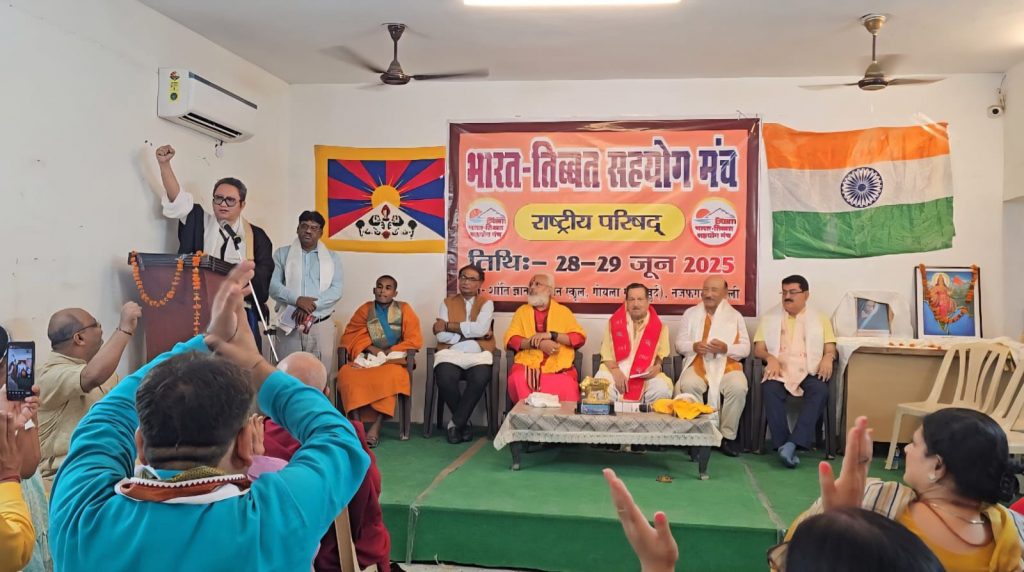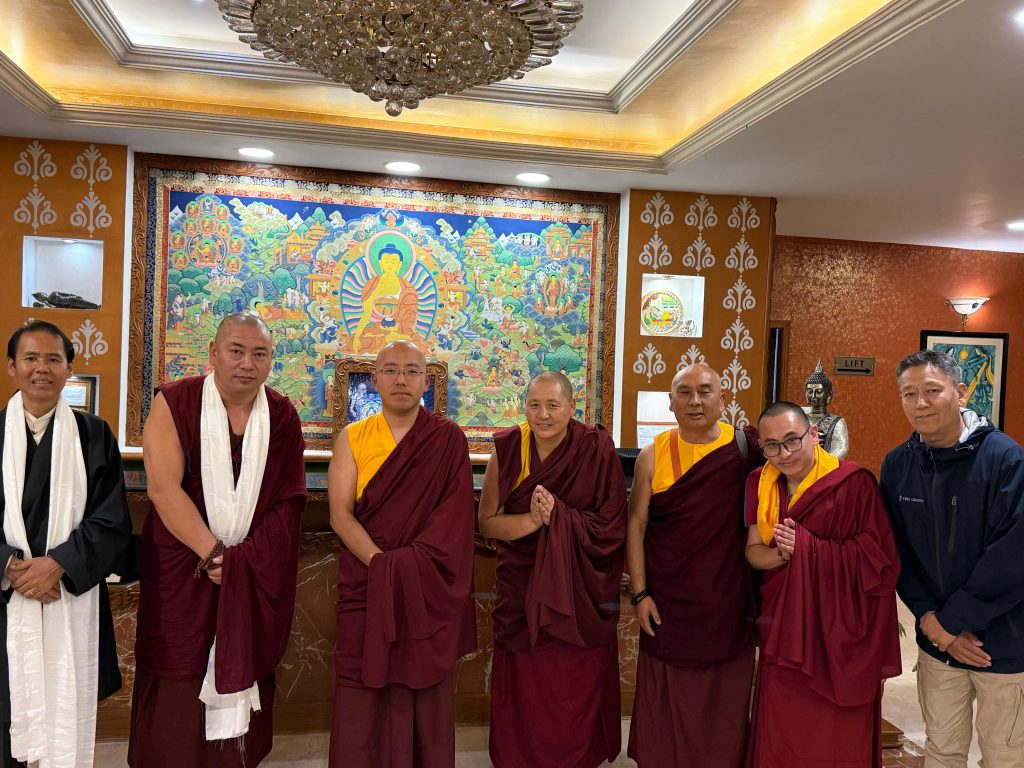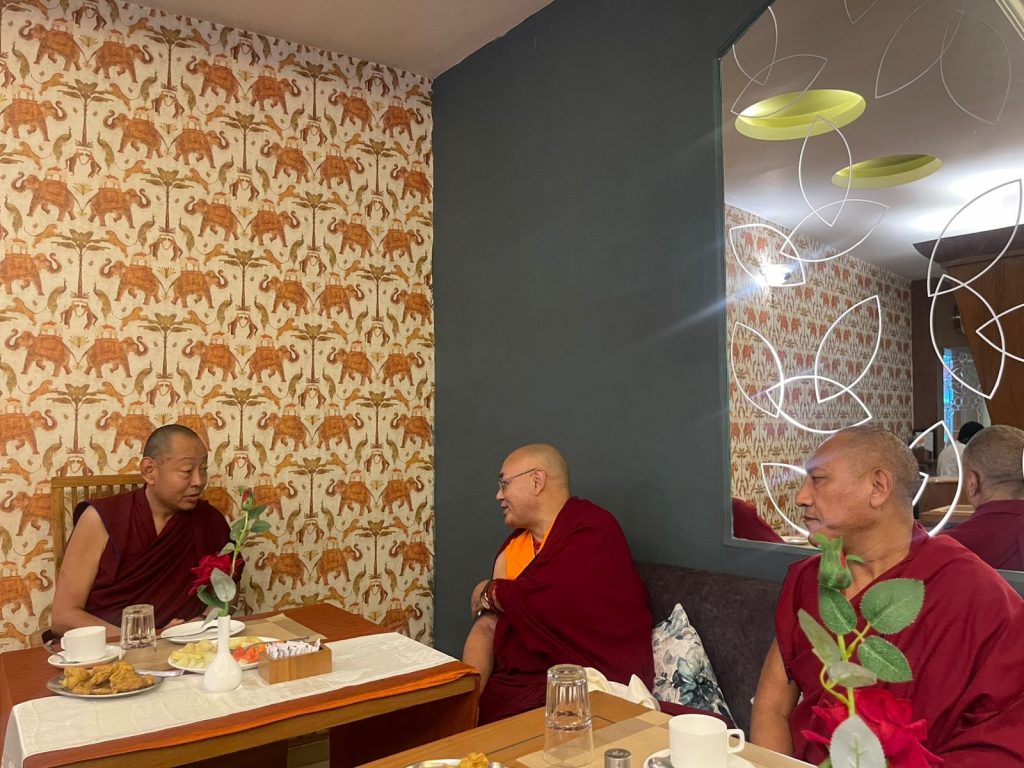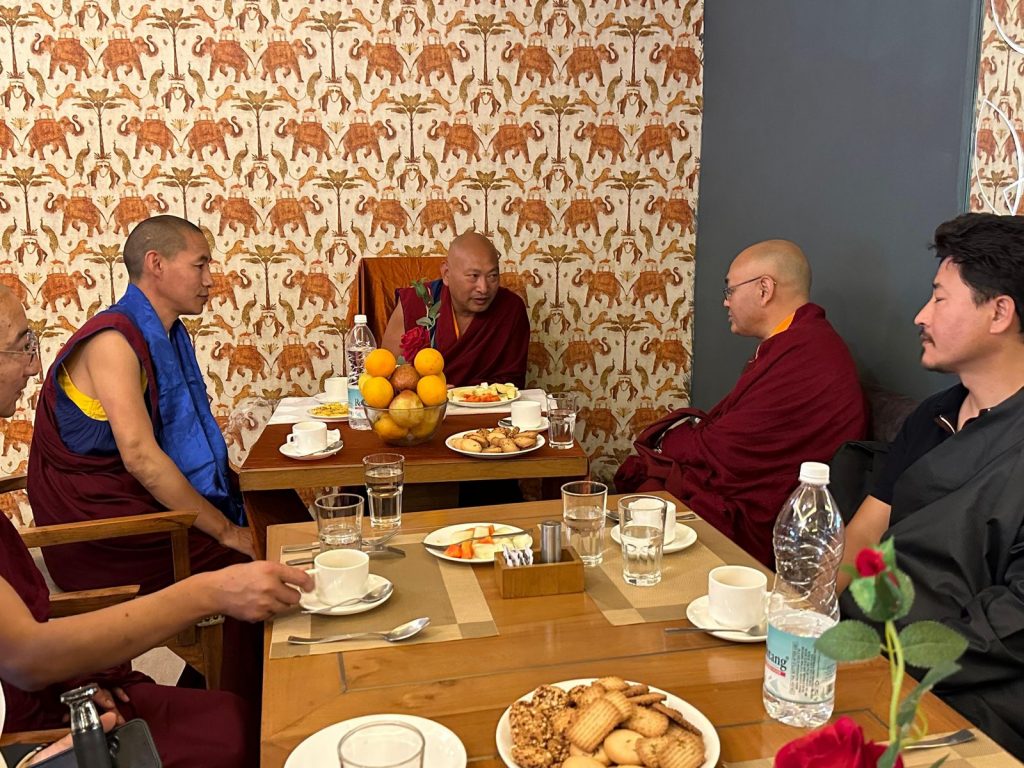
Dharamshala: MP Joseph Mooney, Member for Southland (National Party, New Zealand); MP Ingrid Leary, Member for Taieri (Labour Party, New Zealand); MP Helen White, Member for Mt Albert (Labour Party, New Zealand); and MP Rinesh Sharma, Member of the Fijian Parliament, visited the Tibetan Parliament-in-Exile on 11 December 2024.
The parliamentary delegation was warmly welcomed by Deputy Speaker Dolma Tsering Teykhang, who greeted them with traditional Tibetan ceremonial scarves. The delegation was then given a tour of the parliament hall.
Following the tour, the MPs held a meeting with Deputy Speaker Dolma Tsering Teykhang, MP Tsering Yangchen, and MP Tenzin Jigdal in the Standing Committee’s hall.
During their meeting, important recent developments including the situation in Tibet which continues to raise concerns, as the region grapples with cultural erosion, human rights violations, and political suppression were discussed. Tibet, historically recognized as an independent region, remains a focal point in the ongoing conflict between its quest for autonomy and China’s claims of sovereignty.
“The Indo-Tibetan Border serves as a reminder of its historical independence. However, since the 1950s, China has exercised control over the region, implementing policies that have significantly impacted Tibet’s traditional way of life,” noted the Deputy Speaker.
As the Central Tibetan Administration (CTA), led by His Holiness the Dalai Lama, has been at the forefront of efforts to preserve Tibetan culture, language, and religion. The CTA advocates for global recognition of Tibet’s autonomy and the protection of its heritage.
Discussing current challenges under Chinese rule, they discussed how Tibetans face increasing restrictions on their cultural practices, including the suppression of the Tibetan language and Buddhist traditions. Educational institutions in Tibet have reportedly been used to promote Chinese propaganda, further marginalizing Tibetan identity. Environmental degradation in the ecologically vital Tibetan Plateau, known as the “Third Pole,” has further compounded the challenges for local communities.
The international community has expressed growing solidarity with Tibet. Advocacy groups continue to promote Tibetan art, language, and religion to preserve its heritage.
Emphasizing the need for multi-lateral pressure on China to address human rights violations and environmental concerns, they discussed efforts to amplify Tibet’s voice include campaigns on global platforms, drawing attention to the plight of Tibetans and the ecological importance of the region.









